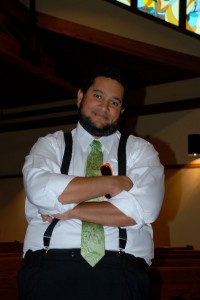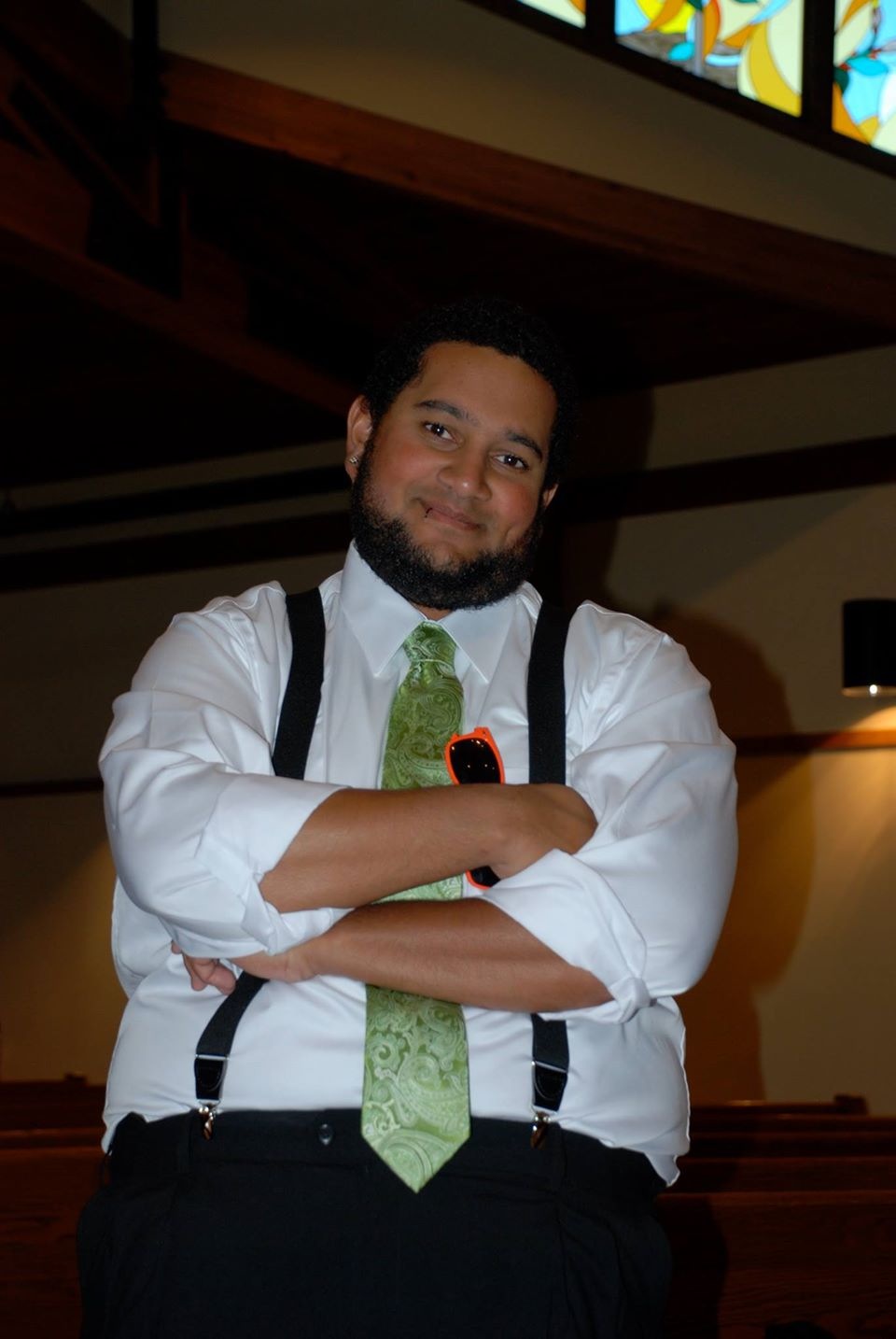Earrings – Alex LaChapelle
 My mother was worried that I would look like a woman. Well probably not… but that is what she said when I went by myself to get my ears pierced at Claire’s. A silver ball in each earlobe, my shaved head, baby face and my dark skin had my mother convinced that the rest of the world would think me a woman. When I walked in the door with my two little additions only days after turning 18, she was so frustrated with my actions. Her reaction was to say hurtful words hoping that such negativity would cause me to squander my little investment and just take them out. But was it her personal disapproval? Yes, but more than that, socialization had taught her that a man does not wear earrings, women do and that was that. My mother didn’t approve, but being a person of color and having earrings had my mother running down a rabbit hole attacking my gender to try and scare me “straight.”
My mother was worried that I would look like a woman. Well probably not… but that is what she said when I went by myself to get my ears pierced at Claire’s. A silver ball in each earlobe, my shaved head, baby face and my dark skin had my mother convinced that the rest of the world would think me a woman. When I walked in the door with my two little additions only days after turning 18, she was so frustrated with my actions. Her reaction was to say hurtful words hoping that such negativity would cause me to squander my little investment and just take them out. But was it her personal disapproval? Yes, but more than that, socialization had taught her that a man does not wear earrings, women do and that was that. My mother didn’t approve, but being a person of color and having earrings had my mother running down a rabbit hole attacking my gender to try and scare me “straight.”
There was a time growing up where you had to be careful which ear because then you were gay if you weren’t careful. This is what we all used to say when growing up, and where did we learn it? From our parents. Then there was the idea that being a young person of color with earrings, I may look “ghetto.” Could I ever get a job? Would anyone trust me? Maybe the Trayvon Martin fear already existed for a white mother and her Cuban son. I understand my mother’s fears, but for me they were abusive nonsense trying to form me and set me down a predetermined road. You will be a good boy, dress nice, and then grow into a man who never lets his hair get too long or too short.
Raised in an all-white culture between school and family I was always seen as a bit of an outsider regarding race. Looking around the room, you could peg me with a phrase like, “He has darker skin.” My guess who game was rather boring, but I was accepted into these communities and I played well with others and I was social. There was rarely ever an issue regarding my race, but I was aware that it could get me into interesting questions like, “Where are you from?” or “What are you?” “Wisconsin” and “human” were never satisfactory and so I learned they wanted to know what made me different, my skin color.
So what about gender? I am an out heterosexual male, but what I recognize is that luckily for me it lined up with the educational institutes I attended. As much as they did not want me to express being a person of color, they were much more aggressive that no one could challenge the gender roles set in stone eons ago. The rules were: penis equals male and vagina…girl. As I have grown older, I realize at weddings and on the occasional run in or Facebook friend request, my classmates had to keep their gender and sexuality a secret. My dark skin set me apart, but rules were in place to protect blatant racist actions. There was nothing in our church, in our school, or in our government that kept safe, any kid who had a thought or a question about their gender or sexuality that swayed from heteronormativity.
If I didn’t have eyes, I would probably have thought I was white by the way I was raised. I was trained quite well in my family and schools that I was just like everyone else, but it really meant we do not have time to teach you about your history or take time to recognize your diversity. The same is still being said in regards to gender. Earrings don’t make you gay, and with my addition of facial hair and a pretty low voice, no one mistakes me for a woman. But what I realize now is: so what if they did? Not to mention, someone who looks like me may think himself or herself something completely different. So it is way past time to drop the fence around male and female and look for those places and existing names that allow for others to say who they are, because it never feels good for any reason to be told who you are or how you will be perceived. Rather it is the time to ask people who they are and let them name that and lift it up. No more closets no more hiding. A person’s gender may be harder to see, but it is no less concrete than my skin color, and should be held in our government, church, and society to the same task of acceptance.
Alex LaChapelle is a Senior MDiv student at the Lutheran School of Theology at Chicago. He has his BA in Theology from Concordia University Chicago, with an emphasis in Youth and Family Ministry. Before seminary Alex spent time in camp ministry in the Northwest, and hopes to continue in youth and family ministry after he graduates in May.

